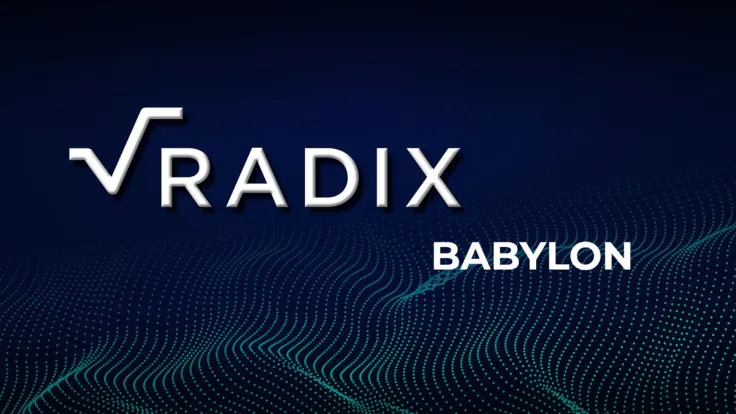Radix smart contract platform for asset-oriented DeFi has recently announced the launch of its new test network, Alphanet, for the upcoming Babylon release, which is the first update to the existing Radix Public Network.
Radix is a full-stack solution for DeFi which, with the Babylon release, will include Radix Engine, the world's first programmable "DeFi Engine" with native asset features. The stack will include Scrypto, an asset-oriented programming language based on Rust.
Radix also aims at changing how wallets interact with networks, adding a new component-based account model and a new asset-oriented model for transactions.
Babylon Alphanet
Babylon Alphanet is the latest major milestone since the first preview release of Scrypto in December of 2021, called Alexandria. What we see now is stage two of a release schedule that will help developers to start working with new Babylon DeFi capabilities.
Another step on the march to Babylon with the release of Alphanet, bringing a fully functional #DeFi ecosystem on #Radix one step closer. https://t.co/5VCVmQHg9A?from=article-links$XRD pic.twitter.com/frJjRcs3mt
— Radix - Radically Different DeFi (@radixdlt) September 28, 2022
With this approach, Radix ensures a smooth transition and helps a community of more than 3,000 developers who started working with Scrypto.
Despite the bear market conditions, Radix is seeing a large growth in transaction volume and a 52% increase in the number of wallets, with over 2,000 XRD since the start of 2022. The total number of active users on the Radix network increased to 81,300 in the last nine months.
Additionally, the smart contract platform is going through a series of native XRD token listings on large exchanges such as KuCoin, HitBtc, Bitmart and others. The XRD tokens are already available for trading against BTC and USDT.
With the Babylon Alphanet launch, exchanges are expecting a surge in trading volume and activity on the XRD market ahead of launching the Babylon mainnnet.


 Dan Burgin
Dan Burgin Vladislav Sopov
Vladislav Sopov